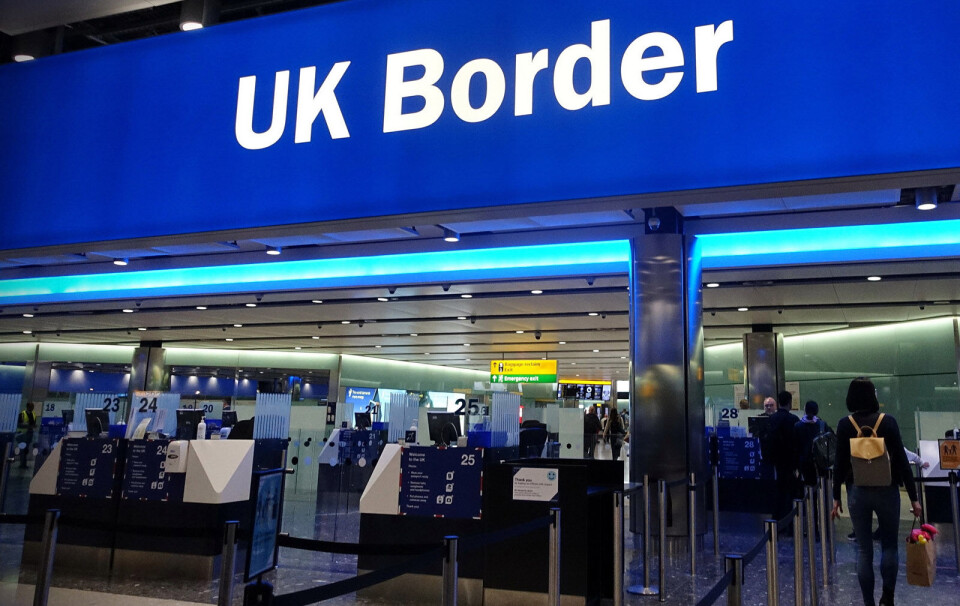-
Alerts over high pollution in Normandy and Paris
Health warnings are in place for vulnerable people
-
Strikes at French ports to continue during March: List of dates
Ferry services may be affected if action stepped up
-
How to help animals and avoid errors in your French garden before spring
Gardening with care can make a big difference at this time of year
Covid-19 France: App may flag up infection risk
A mobile phone application that alerts users if they have been in prolonged contact with a person who has been tested positive for Covid-19 could be part of France’s strategy for coming out of the confinement period.

President Macron confirmed that that government “will be working on” the possibility in the run-up to confinement measures being eased from May 11, however so far nothing has been decided.
“We must not rule out any avenues, any innovations,” he said.
The idea of using IT to track people’s digital data so as to see if they had been in touch with infected people was dismissed last month by Interior Minister Christophe Castaner as “not part of French culture” and something that “harms each person’s individual liberty”.
However last week IT Minister Cédric O and Health Minister Olivier Véran said France was working on an app project called StopCovid. This would not “track” people as such, but rather work by Bluetooth connecting between two phones which carry the app.
Mr O said at the time nothing would be decided without “a wide debate”, but that the app would aim to “limit the spread of the virus by identifying chains of transmission”.
“The idea would be to warn people who have been in contact with an ill person who has tested positive for Covid-19, so that they can get themselves tested, and if necessary they can get treatment very quickly or they can quarantine themselves,” he said.
It is understood that the app would not specifically identify the infected person you have been in contact with, also the data would be wiped after a certain period.
However one member of national data protection agency Cnil, which is going to be consulted on the potential use of the app, Philippe Gosselin, told Paris Match: “They are saying people will be protected because there is no transfer of personal data. But if you’ve only met four people in the last 12 hours… you have a good chance of knowing who it was.”
It is unclear from information given so far as to exactly how the application would know who has tested positive for Covid-19.
Mr Macron said last night the idea was being developed as part of several avenues to accompany the deconfinement phase from May 11, by which point he said France will have the capacity to test anyone who has symptoms so that those with the virus may be quarantined and treated.
He said the application was being worked on together with European partners and would be “voluntary” and “anonymous” and would “allow you to know if you have been in contact with an infected person or not”.
He added: “I wish that before May 11 Parliament should be able to debate this, and that the competent authorities can inform us. This epidemic must not weaken our democracy, or erode our liberties.”
There would be no geolocalisation involved, Mr O told Le Monde.
This is contrary to a system being used in China, which tracks people’s movements by satellite to see if they have been in contact with infected people or have visited high-risk zones.
Mr O said a French task force on the scheme was being led by Inria (Institut national de recherche en informatique et en automatique).
It is looking at a system developed by a group of researchers and developers from eight European countries, called Pepp-PT (Pan European privacy preserving-Proximity tracing), which could be adapted by individual countries interested in the technology.
Apple and Google have developed a similar app, which is now being used in Singapore, called TraceTogether.
It uses Bluetooth to connect to surrounding phones and identify those tested positive for Covid-19.
If individuals come into contact with a sick person they then receive a phone call from the Health Ministry telling them to self-isolate.
The app does not seem to bother anybody living in Singapore, according to 15 French people living there interviewed by FranceInfo.
It is not obligatory, however one interviewee said “everyone” in his circle of (mostly Singpore locals) friends was using it. Even so, official figures show around a million users, which is less than 20% of the total population of 5.6million.
The developers of Europe's Pepp-PT say their application will not make use of people’s telephone numbers.
One potential technical issue is that Bluetooth was not intended to precisely measure distances between individuals, Mr O told Le Monde, so it remains to be clarified how accurately if can check that you have been in close contact with someone.
Pepp-PT say however that reliable information can be obtained when there has been a “prolonged contact”, and these are in theory the only kinds of interaction that would be picked up.
The team states that a study by Oxford University researchers published in Science, has shown that such “contact tracing” can be alternative to prolonging confinement, especially if those in contact with infected people can be alerted to the fact quickly – in a matter of hours, not days.
Another issue, however, is how much take-up would be required for the system to be effective.
One of the authors of the study, Christophe Fraser, told FranceInfo for it to have a “significant impact” around 60% of the population should have it on their phones.
What is more some 23% of the French population are estimated not to have a smartphone, although Mr O said they are looking at possible financial aids to buy a phone as well as “alternatives” for those who do not have one (he did not clarify what these could be).
Finally, the effectiveness of such a system would also depend on widespread testing taking place.
Mr Macron said last night: “As wide as possible use of testing and detection is a key weapon in order to come out of the confinement period at the right time.
“Before then, in the coming weeks, we are going to increase the number of tests done each day, which has already been the case for the last 15 days. In the next weeks I’ve asked that these tests should first of all be done with the elderly, carers and those who are most vulnerable.
“We must be ready to mobilise the means to carry out the tests everywhere, which means in all the state and private medical test laboratories.”
Nonetheless he said the focus would be on people presenting symptoms and it would be “pointless” to test everyone in France.
Another avenue for the deconfinement period will be making it possible for everyone in France to obtain a “general public” mask, he said, although he said it was not currently planned to make wearing one obligatory.























